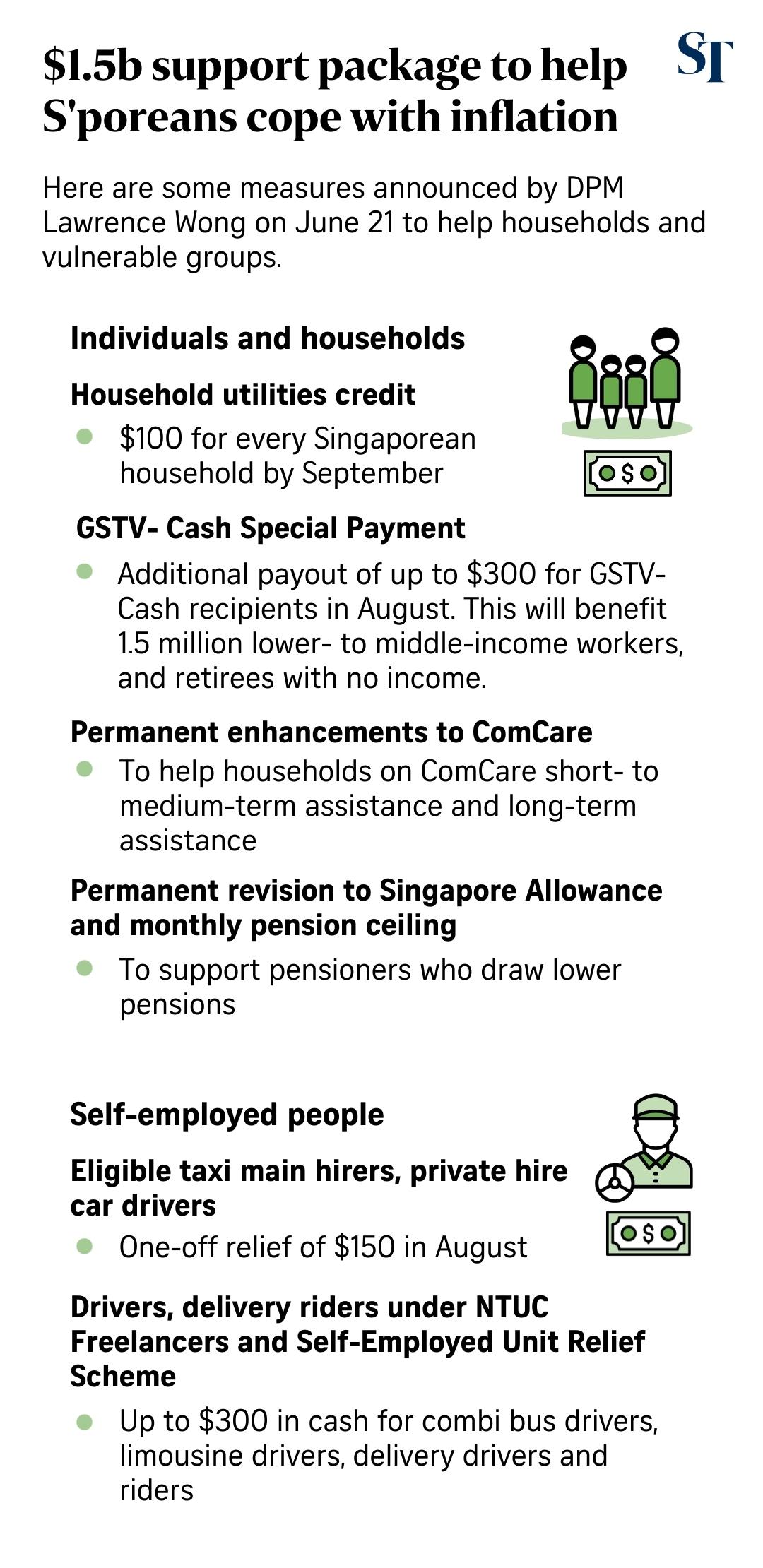SINGAPORE - Lower-wage workers and job seekers who need more help will be getting greater support, with new measures announced by Deputy Prime Minister Lawrence Wong on Tuesday (June 21).
The Progressive Wage Credit Scheme, in which the Government co-funds the wage increases of lower-wage workers under progressive wage measures, will be enhanced.
The Jobs Growth Incentive will also be extended. It provides support for employers to hire mature job seekers who have not been working for at least six months, as well as people with disabilities or former offenders.
"We will continue to look out for lower-income and vulnerable workers during this difficult period," Mr Wong said.
"One way is to ensure that employers continue to hire and pay lower-wage workers higher wages, better wages, as part of our Progressive Wage Model. To give this a further push, I will enhance the Progressive Wage Credit Scheme this year so that the Government takes on a larger proportion of the wage increases, and this enhancement will also help to reduce the cost burden for employers."
The Progressive Wage Model is a wage ladder that sets out the minimum monthly salary for local low-wage workers, based on their skills and training.
With this enhancement, the Government's co-funding share of eligible wage increases in 2022 will jump from 50 per cent to 75 per cent for resident employees with gross monthly wages of up to $2,500.
The co-funding share will also go up from 30 per cent to 45 per cent for employees with gross monthly wages above $2,500 and up to $3,000.
All other existing scheme parameters remain unchanged.
Senior Minister of State for Finance and Transport Chee Hong Tat said: "This will reduce the cost impact of employers when they hire and when they pay low-wage workers higher salaries. That is the outcome that we want to see, to uplift our low-wage workers.
"We also want to help businesses to cushion some of the labour cost increases while continuing with our tripartite efforts to improve labour productivity and skills upgrading."
The average gross monthly wage increase of workers has to be at least $100 in 2022 compared with 2021, according to the Finance Ministry.
Eligible employers can expect to receive the 2022 payout of the Progressive Wage Credit Scheme from the Inland Revenue Authority of Singapore by the first quarter of next year.
Singapore National Employers Federation executive director Sim Gim Guan said: “With the expansion of the Progressive Wage Model, starting with the retail sector and in-house cleaning, security and landscape workers from September 2022, it will help employers to mitigate the wage cost increase and hence the overall business cost increase.
“With the increased level of support, employers could also consider granting higher wage increase for their lower-wage workers, which will in turn help them cope with the higher inflation that we are experiencing.”
But he added that the most important thing is that both employers and employees should continue to improve their productivity so that the wage increases are sustainable, as government support will end eventually.

Meanwhile, to support companies hiring mature job seekers, people with disabilities and former offenders, the Jobs Growth Incentive will be extended.
The current phase will end in September, but it will now be extended for another six months to March next year.
Under the incentive, the Government provides wage subsidies for companies that hire local workers.
This extension aims to sustain the support for employers of vulnerable workers, the Finance Ministry said in a statement.The Manpower Ministry will provide more details of the extension closer to its expiry date.
Mr Sim said the extension of the incentive will be useful to support employers who are inclusive and willing to hire such job seekers.
“In particular, there are a pool of mature job seekers who may want to return to the workforce after months or even years of not working due to personal or family reasons.
"Employers can additionally tap various career conversion programmes to train these job seekers whose skills may have become less relevant. Together, these support measures will help to subsidise the employers’ hiring and training costs,” he said.
UOB said it welcomed the extension of the scheme. It hired over 450 mature and differently abled workers in the last two years.
“UOB has a longstanding practice of hiring mature and differently abled staff, as they offer tangible and unique benefits to the bank,” said Mr Dean Tong, head of group human resources.
At its Scan Hub, more than a third of staff are differently abled, such as those with autism or who are hearing impaired.
The bank also has a gig employment model for retired employees who want to return to work on a flexible basis, while enjoying full healthcare benefits and insurance coverage. Currently, 21 staff are on this model.
“UOB will continue to hire mature and differently abled people even after the scheme expires, as we value and appreciate the significant contributions they have made for the bank,” Mr Tong said.


